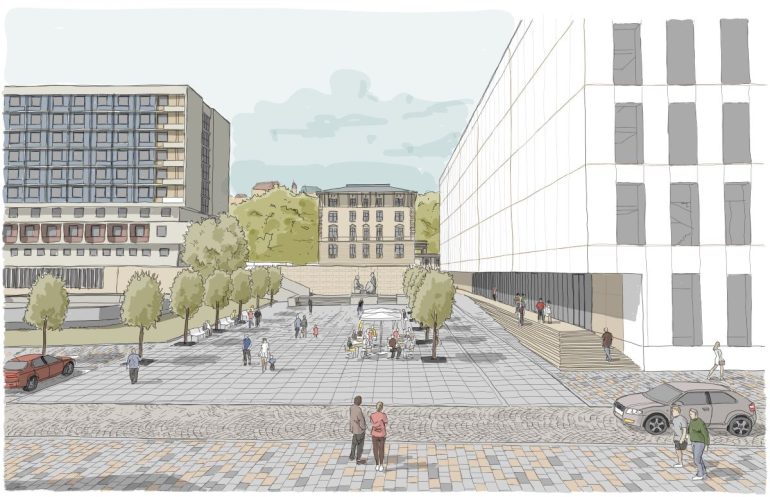Archaeologists working beneath Veselá Street, on the future site of the Janáček Cultural Center, have uncovered a remarkably preserved 13th-century brick house, a discovery they say is unparalleled in Brno’s medieval archaeology.
Teams from the Brno City Museum and Archaia Brno are now completing the main phase of excavations at the site, where thousands of artefacts have already been unearthed, some dating as far back as the Neolithic era. But the most extraordinary finding, they say, comes from the Middle Ages.
“We discovered the completely preserved ground floor of a brick house from the 13th century,” said archaeologist Aleš Navrátil of the Brno City Museum. “Such houses are almost non-existent in Brno’s High Medieval urban development. Usually, we encounter only fragments damaged by later construction. A structure this intact is unique.”
The team attributes the extraordinary condition of the site to the high groundwater level, which prevented the decay of wooden structural elements. As a result, timbers from medieval cellars, wells and cesspools have survived in excellent condition, allowing researchers to reconstruct building techniques and even date the wood with precision through dendrochronology.
As the city expanded over the centuries, layers of soil and waste accumulated above earlier settlement levels. Excavators reached nearly three metres into these layers, revealing over 700 years of urban history.
Alongside structural remains, archaeologists found thousands of small items, including fragments of kitchen ceramics, animal bones, iron household components, and tools. Among the older discoveries were Neolithic flints, a stone axe, and even a shell which is potentially evidence of medieval trade links with the Mediterranean.
All smaller artefacts will become part of the Brno City Museum’s collections, while the medieval house will be thoroughly documented in drawings, photographs and 3D scans before giving way to construction.
The most labour-intensive phase of the research, with around 30 workers on site daily, will finish on 20 December. A second, shorter phase will continue next year but is not expected to delay construction of the Janáček Cultural Center.
According to Brno Mayor Markéta Vaňková, work on the new concert hall is progressing without technical complications. The construction pit is already 20% excavated, key utility transfers are completed, and reinforcement of underground levels is underway.
“When preparing this project, we never dreamed of how far into history we would go,” said Luděk Borový, CEO of Brněnské komunikace.
For Filharmonie Brno director Marie Kučerová, the discovery carries special meaning. “As a historian, I am pleased that we are learning new information about medieval Brno. And as a musicologist, I am pleased that this place will soon resonate with music again.”
The Janáček Cultural Center is one of Brno’s most significant strategic investments, expected to reshape the city’s cultural landscape once completed.






